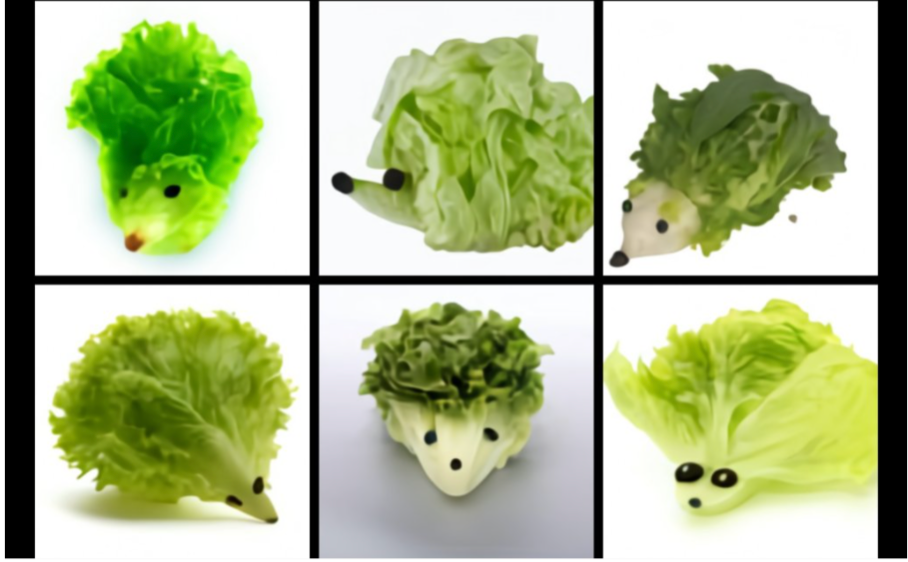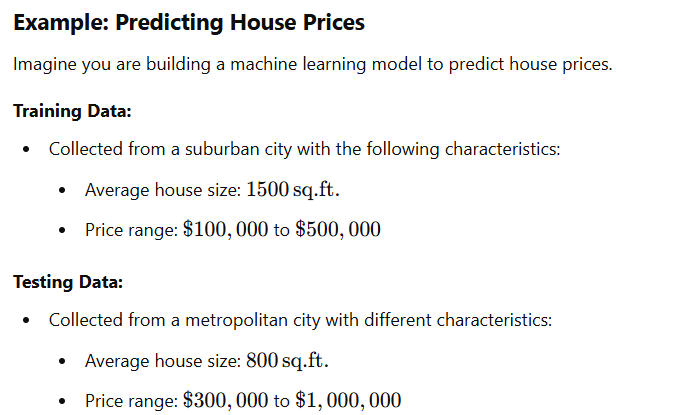200bn Weights of Responsibility
200 亿责任之重
The Stress of Working in Modern AI
现代 AI 工作的压力
The field of AI has changed irrevocably in the last 2 years.
人工智能领域在过去两年中发生了不可逆转的变化。
ChatGPT is approaching 200m monthly users. Gemini was visited almost 320m times in May 2024, AI enthusiasts can now avail themselves of AI microwaves, AI toothbrushes and even an AI football.
ChatGPT 月活跃用户接近 2 亿。Gemini 在 2024 年 5 月访问量近 3.2 亿次,AI 爱好者现在可以享受 AI 微波炉、AI 牙刷甚至 AI 足球。
However, for many of us who work in AI, this boom in popular interest is both a blessing and a curse. Certainly, salaries have increased, along with stock prices and market valuations. On the other hand, the change has brought with it a unique set of stresses.
然而,对于许多从事人工智能工作的人来说,这种公众兴趣的激增既是福也是祸。当然,薪资、股价和市值都上涨了。另一方面,这种变化也带来了一组独特的压力。
This blog is about the stresses of modern AI. It is aimed at those who work in AI (which by conservative estimates is now something like 87% of the world’s population), but particularly those who do AI research.
这篇博客是关于现代人工智能的压力。它面向那些从事人工智能工作的人(保守估计现在大约占世界人口的 87%),尤其是那些从事人工智能研究的人。
Ultimately, I hope that talking about what makes AI research stressful can make life a little more joyful for those of us lucky enough to work in the field. Because, despite the current chaos, it remains a wonderful, fulfilling profession; one that has the potential to resolve many of the great questions of science, philosophy and thus humanity itself.
最终,我希望讨论是什么让 AI 研究变得有压力能够让那些有幸从事这一领域工作的我们生活更加快乐。因为,尽管目前混乱,它仍然是一项美好、充实的职业;一项有潜力解决科学、哲学乃至人类自身许多重大问题的职业。
No escape 没有逃脱
A few months back, I was at a friend’s 40th birthday party. We are close friends so I knew a good proportion of the guests, some very well. But I didn’t know them all.
几个月前,我在一个朋友的 40 岁生日聚会上。我们关系很好,所以我认识大部分客人,有些还非常熟悉。但并不是所有人都认识。
Among those that I knew least well, I noticed a curious effect.
在我不太了解的人中,我注意到一个奇特的现象。
Despite my not being very well (more of that later), and evidently not keen to engage in conversation, a small queue formed around me. Simply because it was known that I work for DeepMind, people wanted to talk to me.
尽管我身体不适(稍后详述),显然也不愿意参与交谈,但在我周围形成了一个小队伍。仅仅因为人们知道我在 DeepMind 工作,所以他们想和我交谈。
And it was not about therapeutic things like football or 80s music. These people wanted to talk about the one thing that I was trying most to avoid thinking about: AI. While it was flattering that so many were interested in my work, it also reminded me how much had changed in the last two years. Bankers, lawyers, doctors and management consultants all wanted to get my take on ChatGPT; and although few claimed to use such LLMs directly in their work, they were convinced that something was happening in AI that they ought to know about.
它不是关于足球或 80 年代音乐等治疗性事物。这些人想谈论的是我尽量避免思考的一件事:人工智能。虽然很多人对我的工作感兴趣让我感到荣幸,但也让我意识到过去两年发生了多大的变化。银行家、律师、医生和管理顾问都想知道我对 ChatGPT 的看法;尽管很少有人声称直接在自己的工作中使用LLMs,但他们确信人工智能领域正在发生一些他们应该了解的事情。
As a researcher, I’m sure you can relate to this feeling of being unable to switch off at social occasions.
作为一名研究人员,我确信你能理解在社交场合无法放松的感觉。
But it gets worse. I’m not even safe in the confines of my own home.
但是情况更糟。我在自己家中甚至都不安全。
I had long stopped watching the news for fear of triggering anxiety. But even when watching football, VH1, Inspector Montalbano, or that excellent TV adaptation of Elena Ferrante’s Neapolitan Quartet, the adverts were replete with references to AI.
我早已停止看新闻,生怕引发焦虑。但即便在看足球、VH1、蒙塔朗博诺警探或那部优秀的埃莱娜·费兰特的《那不勒斯四部曲》电视剧改编,广告中也充满了对人工智能的提及。
At this time, I often thought about packing my bags, crossing continents and joining an isolated sect. Although I wouldn’t be surprised if even Vipassana has in some way been infiltrated by AI at this stage.
此时,我常常想收拾行李,穿越大陆,加入一个孤立的小团体。尽管在这个阶段,即使 Vipassana 也以某种方式被 AI 渗透,我也不会感到惊讶。
Implicit competition 隐含竞争
The fact that a few large companies seem to be competing over developing the biggest, best large language model is itself inherently stressful; whoever you work for.
几家大型公司似乎在竞争开发最大、最好的大型语言模型,这一事实本身就有压力;无论你为谁工作。
Doing AI research at the moment can feel like participating in a war. And from Adolph Hitler to Dutch Schulz. it is widely known that going to war can lead to grave outcomes including psychopathy, divorce and suicide.
目前从事人工智能研究可能会感觉像是在参与一场战争。从阿道夫·希特勒到荷兰的舒尔茨,众所周知,战争可能导致严重的后果,包括精神错乱、离婚和自杀。
Of course, this is not to equate participation in AI research with physical combat in a ‘literal war’. But I know from my own experience that the parallels are genuine, if somewhat tenuous.
当然,这并不是将参与人工智能研究等同于“字面上的战争”中的身体战斗。但根据我自己的经验,这种相似性是真实的,尽管有些微弱。
Working on the bottom line
致力于底线
Typically, researchers in industry are not accustomed to their work having a direct and immediate impact on the bottom line of their employers
通常,工业界的研究人员不习惯他们的工作直接且立即影响雇主的底线
Of course, many researchers would dream about the chance of making such an impact. It’s just that previously it was only like a once-in-a-decade occurrence.
当然,许多研究人员都梦想着有机会产生这样的影响。只是之前这就像是十年一遇的事情。
In most cases, the result of fundamental research on LLMs today is small and likely short-term perturbations in model performance. However, with public valuations so (inextricably?) linked to LLM performance, these perturbations can in turn lead to billion-dollar swings in stock prices.
在大多数情况下,今天对LLMs的基础研究结果是模型性能的小幅且可能是短期波动。然而,由于公众估值与LLM的表现如此(不可分割地?)相关联,这些波动反过来可能导致股价出现数十亿美元的波动。
This dynamic is of course very stressful, and not something that AI researchers would have been prepared for at graduate school, during postdocs, or even on the job itself prior to 2022.
这种动态当然非常紧张,这不是 AI 研究人员在研究生院、博士后期间,甚至 2022 年之前在工作中准备好的事情。
Money money money 钱钱钱
Most AI researchers, especially those of us over a certain age, did not get into research to make money. Getting lots of money for doing a job you love sounds like a panacea, but it can also provoke intense anxiety. Particularly if the external factors driving your increased revenue are not within your control and/or have the effect of making you love your job a lot less than you used to.
大多数人工智能研究人员,尤其是我们这些年龄稍大的人,进入研究领域并不是为了赚钱。为热爱的工作赚取大量金钱听起来像是一种万能药,但它也可能引发强烈的焦虑。尤其是如果推动你收入增加的外部因素不在你的控制范围内,或者有让你不再像以前那样热爱工作的效果。
Whether or not AI has anything to do with it, there is ample evidence that accruing wealth suddenly can lead to all sorts of problems; just look at actors or singers who finally made it big after years of trying. Addiction, broken relationships, fractured friendships and even suicide are just some of the more common symptoms. These are certainly symptoms that I can relate to.
无论 AI 是否与此有关,有充分的证据表明突然积累财富可能会导致各种问题;只需看看那些经过多年努力终于取得成功的演员或歌手。上瘾、破裂的关系、破碎的友谊甚至自杀只是其中一些更常见的症状。这些确实是我能感同身受的症状。
No role for scientists 无科学家角色
The scale, simplicity and efficacy of LLMs makes it hard to do ‘science’ that is relevant, in the sense that it immediately makes LLMs better.
LLMs的规模、简洁性和有效性使得进行相关“科学”变得困难,因为它立即使LLMs变得更好。
Leading LLM researchers are already espousing Rich Sutton’s bitter lesson; the fact that almost no innovation is required beyond scale.
领先的研究员们已经宣扬了 Rich Sutton 的痛苦教训;事实是,在规模之外几乎不需要任何创新。
And, even if substantive innovation were possible in theory (it surely is), realising it would often require repeated training of the largest LLMs under different conditions. This is not something that even the largest companies can afford. For a ‘mere’ research scientist, it can feel soul-destroyingly intractable.
即使理论上可能实现实质性创新(这当然可能),在实践中实现它通常需要在大规模模型(如LLMs)下进行反复训练,以适应不同的条件。这不是即使是最大的公司也能承担得起的事情。对于一个“普通”的研究科学家来说,这可能感觉是无法解决的痛苦。
These conditions are hard for industrial scientists used to working in small (5–10 person) teams. But they are surely even more acute for those in academia: PhDs, postdocs and AI / CS / ML faculty.
这些条件对于习惯于在小团队(5-10 人)中工作的工业科学家来说很困难。但对于学术界的人来说,这些条件无疑更加严峻:博士生、博士后以及 AI/CS/ML 教师。
Publication 发布
While those in academia can (and should) continue to publish the insights gained from experimenting with LLMs, for scientists in industry the question of publication is less clear.
虽然学术界的人可以(并且应该)继续发表从实验LLMs中获得的见解,但对于工业界的科学家来说,出版的问题并不那么明确。
Publication has long been an intrinsic part of the scientific process, and has always been a central tenet of AI research. Most AI researchers I have spoken to, particularly research scientists, agree with me that publishing feels like a critical aspect of our careers.
出版一直是科学过程的一个内在组成部分,并且一直是人工智能研究的一个核心原则。我交谈过的多数人工智能研究人员,尤其是研究科学家,都同意我的观点,认为发表文章是我们职业生涯的一个关键方面。
But, in industry at least, the question of whether publication is a viable outcome for one’s research has become increasingly unclear in the last 2 years. Minor tricks that can improve an LLM equate to potentially crucial weapons in the LLM wars. Whether giving away such secrets is of benefit to the organisation that funds the research is always a nuanced question.
然而,至少在工业界,过去两年里,研究成果发表是否可行的问题变得越来越不明确。一些微小的技巧,在LLM中可能等同于在LLM战争中至关重要的武器。是否将这些秘密公之于众对资助研究组织的利益总是个复杂的问题。
This all means that researchers frequently have no sense of the destiny of their own ideas, which, at least in my case, can cause immense stress.
这所有的一切意味着研究人员往往对自己的想法的命运没有感觉,至少在我个人的情况下,这可以造成巨大的压力。
Startups 初创企业
Of course, one plausible escape from these worries is to derive a scientific vision, raise some capital and form a startup. Indeed, the current proliferation of AI startups (both big and small) shows how many scientists have chosen this route,
当然,一种可能的摆脱这些担忧的方法是制定一个科学愿景,筹集一些资金并成立一家初创公司。事实上,目前 AI 初创公司(无论大小)的激增显示了有多少科学家选择了这条道路。
But becoming a founder cannot be a surefire way to avoid stress-related issues. Indeed, it is famously stressful; even with current levels of investor enthusiasm, many well-funded AI startups fail. I know from my own experience that being a founder is a particularly lonely journey. It’s doubtlessly a viable option for ambitious scientists right now, but not one that is likely to make doing science easy, nor one that reduces stress.
但成为创始人并不能保证避免与压力相关的问题。事实上,这众所周知是压力很大的;即使在当前投资者的热情水平下,许多资金充足的 AI 初创公司也失败了。我从自己的经历中知道,成为创始人是一条特别孤独的旅程。毫无疑问,对于有抱负的科学家来说,这是一个可行的选择,但这并不是一个能让科学变得容易,也不是一个能减轻压力的选择。
Why did I choose to blog about stress?
我为什么选择写关于压力的博客?
The last two years have been chaotic and crazy in the world of AI, but they have also been a particularly turbulent time for me personally.
过去两年,人工智能领域混乱而疯狂,但对我来说,这也是一段特别动荡的时期。
In April 2023 my Mum died after a long battle with Alzheimer’s. At the time I was in a psychiatric hospital after suffering from acute psychosis, with stress a likely important factor. For the following 12 months I was in theory recovering but, in practice, in a state of both extreme anxiety and suicidal depression. During this time, I was incredibly lucky to have employers who understood my situation (and my value to the company) and who provided continual therapeutic and moral support.
2023 年 4 月,我的母亲在与阿尔茨海默病长期斗争后去世。当时我因急性精神错乱正在精神病院接受治疗,压力可能是重要因素之一。接下来的 12 个月,理论上我在恢复,但实际上处于极度焦虑和自杀抑郁的状态。在这段时间里,我很幸运有理解我的情况(以及我对公司的价值)的雇主,他们提供了持续的治疗和精神支持。
After a further 6 months of life-threatening depression, I began to feel better, and recently have felt able to write about my experiences. I learned that stress and anxiety go hand-in-hand; indeed they may ultimately be the same thing. Of course, like any adaptive trait, there can be benefits to anxiety (e.g. around productivity), but when anxiety becomes malignant, the consequences can be quite serious.
经过 6 个月的危及生命抑郁症之后,我开始感觉好转,最近能够写关于我的经历。我了解到压力和焦虑是相辅相成的;实际上,它们最终可能是同一件事。当然,像任何适应性特征一样,焦虑也有其好处(例如,提高生产力),但当焦虑变得恶性时,后果可能非常严重。
It was reflecting on the last two years in AI, while trying to relearn how to be an AI researcher, that gave me the insights I have shared in this blog. Of course, sharing the insights will not solve the problems in general, but one of the few things that gave me hope in the darkest moments was knowing that I was not alone. And if you are suffering right now, trust me — you are not alone.
在反思过去两年的人工智能领域,同时尝试重新学习如何成为一名人工智能研究人员的过程中,我获得了在这篇博客中分享的见解。当然,分享这些见解并不能解决一般性的问题,但在我最黑暗的时刻,让我感到希望的少数事情之一是知道我并不孤单。如果你现在正在遭受痛苦,相信我——你并不孤单。
Social anxiety 社交焦虑
I have covered many of the catalysts of stress or anxiety that may be afflicting those who do AI research at the moment. But there is one form of stress that I have not mentioned, because I’m lucky enough never to have experienced it myself. Rather, I know about it from intimate conversations with friends and colleagues.
我已经涵盖了目前可能困扰那些从事人工智能研究的人们的许多压力或焦虑的催化剂。但有一种压力形式我尚未提及,因为我很幸运从未亲身经历过。相反,我是通过与朋友和同事的亲密交谈了解到的。
And that form of stress is social anxiety.
这种压力形式是社会焦虑。
According to friends, those who are socially anxious find group interactions challenging. This is tough in the world of modern AI, where large project teams and massive (often cross-continental) collaborations are essential. The high level of churn in the industry at the moment only makes things worse, as established teams (which often function as social ‘safety nets’) can be decimated overnight. Churn can also lead to trust issues, as previously reliable allies depart for ‘enemy’ research groups.
根据朋友的说法,那些社交焦虑的人发现群体互动具有挑战性。在当今人工智能领域,大型项目团队和大规模(通常是跨大陆)合作是必不可少的,这更加困难。目前行业的高流动率只会使情况变得更糟,因为那些通常作为社交“安全网”的既定团队可能会在一夜之间被摧毁。流动率还可能导致信任问题,因为之前可靠的盟友可能离开去加入“敌对”的研究团队。
The good news is that social anxiety, like all of the manifestations of anxiety or stress that I have discussed thus far, can be overcome. The process starts by nurturing natural support networks like family and ‘non-AI’ friends. But a critical second step is for all of us who work in AI to start, and continue, a candid conversation about stress.
好消息是,社交焦虑,就像我迄今为止讨论的所有焦虑或压力的表现一样,是可以克服的。这个过程始于培养像家庭和“非 AI”朋友这样的自然支持网络。但对于我们所有在 AI 领域工作的人来说,一个关键的第二步是开始并继续关于压力的坦诚对话。
So please comment with your own experiences, and let’s see if we can make AI research not only a dynamic and intellectually challenging place, but also a compassionate and kind one.
请分享您的个人经历,让我们看看能否让 AI 研究不仅成为一个充满活力和智力挑战的地方,而且还是一个充满同情和善良的地方。






